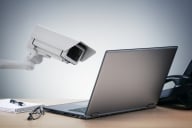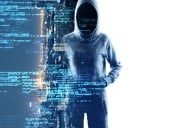You have /5 articles left.
Sign up for a free account or log in.
With dueling hypothetical examples, the chief advocate of a proposed e-mail policy for the University of Illinois at Urbana-Champaign and critics of the plan are debating whether it should be adopted.
Consider this example from Michael Corn, chief privacy and security officer of the university: A student and faculty member are e-mailing one another, and both end up using their non-university accounts. The potential danger -- and the kind of situation the new policy is trying to avoid -- is that by storing certain academic information on e-mail systems disconnected from the university, the faculty member may be unwittingly violating the student's privacy rights under federal law.
Consider this example from Cary Nelson, an English professor at Illinois and the national president of the American Association of University Professors: A faculty member upset about a university policy sends an e-mail to a few hundred colleagues (as he did on Friday, regarding this policy). That act -- fairly routine in the context of campus debates -- would violate the proposed policy.
On Friday, the AAUP along with the Foundation for Individual Rights in Education sent a letter to university officials asking for major changes in the draft policy, which the letter says violates faculty members' First Amendment rights and the principles of academic freedom. The Academic Senate is slated to review the policy today.
On just about every point raised by the AAUP and FIRE, those organizations see threats to free expression and Corn sees little such danger.
The issue mentioned first in the letter is a ban in the proposal on the use of university e-mail for "political campaigning." Such a rule "would deprive students and faculty of the right to engage in a wide swath of constitutionally protected political speech and activity," the letter says. And by failing to define "political campaigning," the university will force students and faculty members to censor themselves when writing about political topics to avoid violating the policy, the AAUP and FIRE say.
For Illinois professors, the idea of limits on political expression brings up a 2008 controversy when the university system's ethics office sent faculty members a memo telling them they could not wear political buttons or have bumper stickers on their cars when on campus. Amid widespread criticism, the university backed down, but the situation left civil liberties advocates watching carefully for any restrictions on political speech at the campus.
Corn said that he included the provision because state law bars public agencies from using state supported resources for political campaigning. He said he didn't see the rule as limiting political discussion, only as applying a state law.
A similar disagreement relates to other provisions in the proposal policy. The rules would bar the use of university e-mail in any way that violates other university policies. The letter from AAUP and FIRE says that the university has several policies in place that the groups consider unconstitutional and that would now have broader application. For instance, the university has various anti-harassment policies that bar a "statement that is offensive [or] humiliating" or that may be "demeaning" to some. These policies would now be applied to any communication on the university's e-mail system, the letter says.
"Faculty members and students must not labor under the specter of punishment of protected speech under the guise of 'sexual harassment' and the fear that an 'offended' person will bring them up on charges for airing their views," says the letter.
Corn said here, too, he doesn't see how the university could have a policy that was not consistent with other university policies. He also said that "it's not like I'm going to be sitting in my office looking at e-mail to see if it offends someone." He said that he believes strongly in free expression, and doesn't see the technology rules of the university being used to adjudicate disputes over speech.
But Nelson said that if the harassment rules become part of an e-mail policy, they will do more damage than they do now. Currently, one party must be offended by some exchange of speech for a complaint to be filed, but the proposed e-mail rules could raise an issue of an e-mail offending someone "even if neither party objects to the message." Nelson said "that breaks new ground and violates First Amendment rights."
Another area of dispute is a requirement that any communication to 100 people or more must be approved for consistency with university missions. Corn said that this is designed to prevent spam. But Nelson said that "it is unacceptable to have any group or individual deciding what messages are consistent with the university's mission."
Corn said that the idea behind the policy is to apply "common sense" rules, and to guide professors on the importance of, per his example of communicating with students on non-university e-mails, knowing when they need to be on university e-mail. Generally, the policy says, "faculty and staff must use a campus or university provided official e-mail service when conducting university business by e-mail."
Why is that important? Corn cited as examples of problems that the university faces "regularly" these scenarios. "A faculty member is using a private Gmail account to do the business of their department. They get sick or die, or leave, and the university can't access this information. If someone is dealing with admissions, there may be no records."
Or another example: "We have seen situations where researchers are collaborating and using personal accounts, and they have a falling out, and the research project is at risk."
While addressing policies to deal with such situations, the university also wanted to assure consistency and compliance with other rules, he said. Corn added that faculty committees were consulted as the policy was developed, so he was surprised by Friday's letter.
Tracy Mitrano, director of IT policy and the computer policy and law program at Cornell University (and a blogger for Inside Higher Ed), said that developing rules for e-mail is complicated.
She said that universities may run into opposition when they ban specific categories of communication, such as political activity. She said that "it is entirely appropriate to state that while de minimis personal use of the network services is allowed, such as sending an e-mail to your husband to pick up a head of lettuce on the way home from work, the campus network is in service of the university's missions," and that "excessive personal use by individuals is prohibited."
Such a system might give an institution leeway to intervene in problematic situations, while not suggesting that any political communication is problematic.
Mitrano noted that when universities must follow state laws, as Corn indicated is the case at Illinois, or when other college rules are in play, it is important for critics to think about where they want to object. "People think that just because technology is used, that all issues are technology policy," she said. But much of the controversy at Illinois seems to be about things that "are not a technology policy, but rules that might govern other areas."








